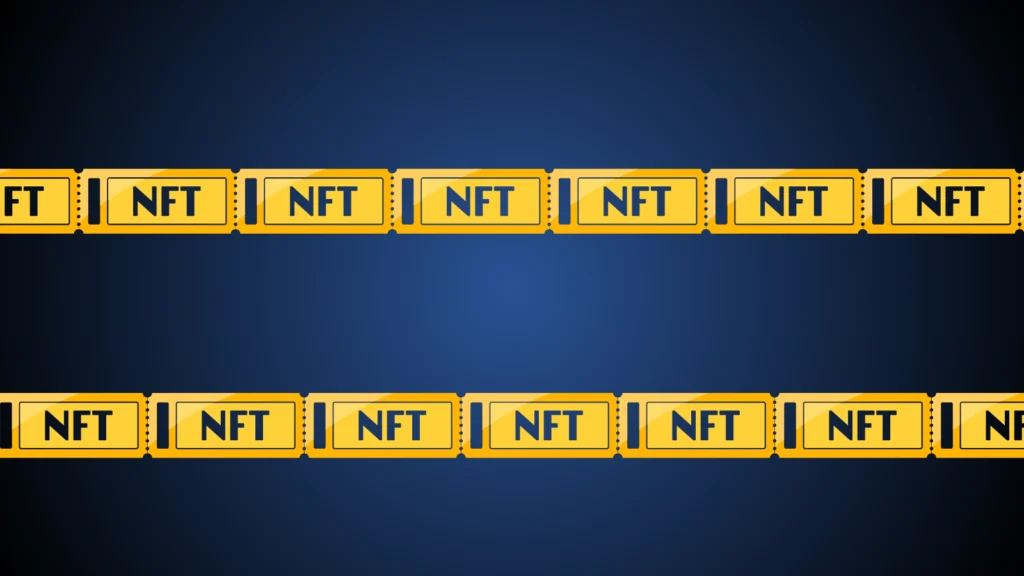
In an era where digital innovation continuously reshapes our daily lives, it’s no surprise that even the way we access events and experiences is undergoing a profound transformation. Non-fungible tokens (NFTs) have emerged as a groundbreaking technology that is revolutionizing the world of ticketing. In this comprehensive guide, we will delve into the history, mechanics, and real-world applications of NFT ticketing, offering a glimpse into the future of event access.
A Brief History
Before we dive into the exciting world of NFT ticketing, it’s essential to understand the roots of NFTs. Non-fungible tokens are unique digital assets that use blockchain technology to prove ownership and authenticity. Unlike cryptocurrencies such as Bitcoin or Ethereum, which are interchangeable, NFTs are one-of-a-kind, making them perfect for representing exclusive access to events or experiences.
The Mechanics of NFT Ticketing
NFT ticketing operates on the principles of blockchain technology, ensuring transparency, security, and authenticity. When a ticket is issued as an NFT, it is recorded on a blockchain, which is essentially an immutable digital ledger. This ledger maintains a transparent and unalterable record of each ticket, making it impossible to counterfeit or duplicate.
Ownership and Transferability: One of the key advantages of NFT ticketing is ownership. When you purchase an NFT ticket, you gain true ownership of a unique digital asset. This ownership can be easily transferred or sold in the digital marketplace. For example, if you can’t attend an event, you can sell your NFT ticket to someone else, providing a level of flexibility that traditional ticketing lacks.
Smart Contracts: Smart contracts, which are self-executing contracts with the terms directly written into code, can be embedded within NFT tickets. These contracts can automate various aspects of ticketing, such as verifying the authenticity of the ticket and ensuring that the creator of the event receives a percentage of the resale value each time the ticket changes hands. This mechanism benefits both event organizers and ticket holders.
Scarcity and Collectibility: NFTs are known for their scarcity, which adds to their allure. Limited edition NFT tickets, for instance, can become highly sought-after collectibles. For example, an artist may release a limited number of NFT tickets to an exclusive concert, with each NFT representing a unique VIP experience. Collectors and fans are willing to pay a premium for these exclusive digital assets.
Real-World Applications and Examples
NFT ticketing has already made significant strides in various industries. From music concerts to sports events, NFT tickets are reshaping how we access and experience entertainment.
Concerts and Music Festivals: Several artists and music festivals have embraced NFT ticketing. For instance, Kings of Leon released their album as NFTs, which also included exclusive access to a live concert. Fans not only got to enjoy the music but also became digital collectors of a unique concert experience.
Sports Events: NFTs have found their way into the world of sports as well. NBA Top Shot, for example, allows fans to buy, sell, and trade officially licensed NBA collectible highlights as NFTs. It’s a novel way for basketball enthusiasts to own and showcase their favorite moments from the sport.
Virtual Reality and Metaverse: With the rise of virtual reality and the metaverse, NFT ticketing is poised to play a pivotal role. Attendees can use NFT tickets to access virtual events, conferences, and immersive experiences in the digital realm, further blurring the line between the physical and digital worlds.
What does the future hold:
The future of NFT ticketing is undeniably exciting. As blockchain technology continues to evolve and gain wider acceptance, we can expect even more innovative applications. Event organizers are likely to explore NFTs for enhanced security, reduced ticket fraud, and greater control over the secondary ticket market.
Additionally, we can anticipate greater integration of NFT ticketing with virtual reality, allowing attendees to enjoy events from the comfort of their homes while still feeling fully immersed in the experience.
In conclusion, NFT ticketing represents a paradigm shift in the way we access and experience events and entertainment. Its combination of ownership, smart contracts, and scarcity creates a unique ecosystem that benefits both creators and consumers. As blockchain technology matures and the metaverse grows, NFT ticketing will continue to redefine how we engage with the world around us, offering new levels of access, authenticity, and excitement. So, as we step into this brave new world of NFT ticketing, one thing is certain – the future holds endless possibilities for event access and experiences that were once unimaginable.
Want to know how Ticmint can help your business?
- Save upto 35% platform fees compared to industry standard.
- 100% customisable & control. Your platform, your way. (No extra charges to remove branding)
- Enhanced transparency and security


